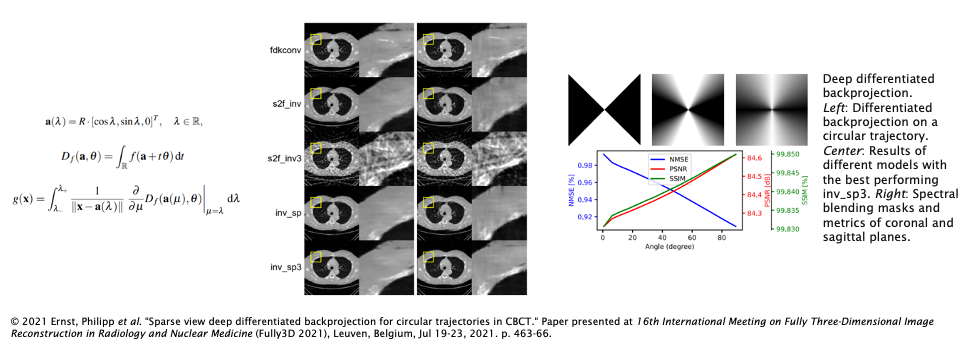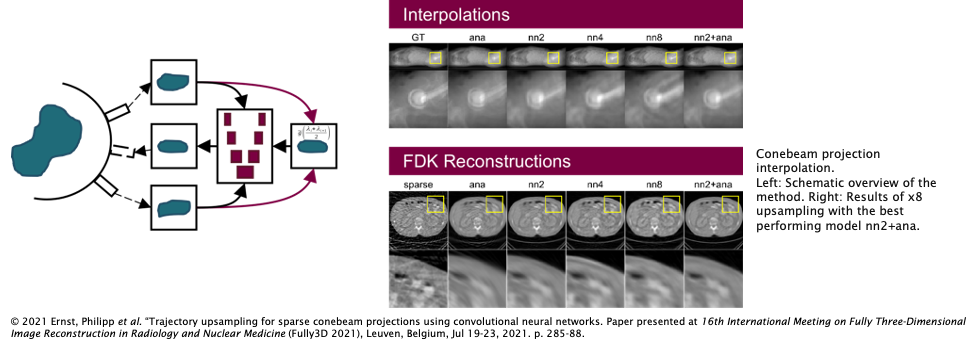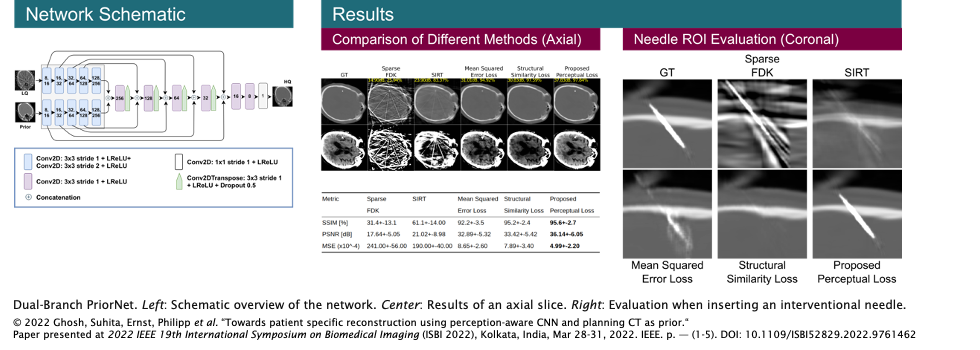Model-based reconstruction methods for CT perfusion imaging
...
M1.10 | Deep learning for interventional C-arm CT
Funding period: Nov 2018 to Jun 2022
Researcher: Philipp Ernst
Wrap-up
Keywords: Convolutional neural networks, cone beam computed tomography, prior knowledge
Background:
Reduction of X-radiation in CBCT image guided medical interventions by using sparse views is essential but results in strong streaking artifacts.
Objective:
Investigating how and to what extent different kinds of prior knowledge improve the quality of sparse view CBCT reconstructions.
Methods:
Algorithms incorporating three types of prior knowledge in combination with convolutional neural networks are proposed and evaluated.
Results:
Temporal/model prior knowledge results in the highest quality increase but needs coarse co-registration of the incorporated scans. Deep learning prior knowledge results in a moderate quality increase whereas algebraic prior knowledge improves the quality the least.
Conclusions:
Temporal/model prior knowledge was found to achieve the highest quality reconstructions. The data was based on simulated projections, however, and therefore needs to be evaluated on real data and specific use cases.
Originality:
To the best of our knowledge, this is the first time that the impact of different categories of prior knowledge in the scope of CT reconstruction with convolutional neural networks was assessed and evaluated. Moreover, mathematical insights on widely used similarity metrics are provided.











